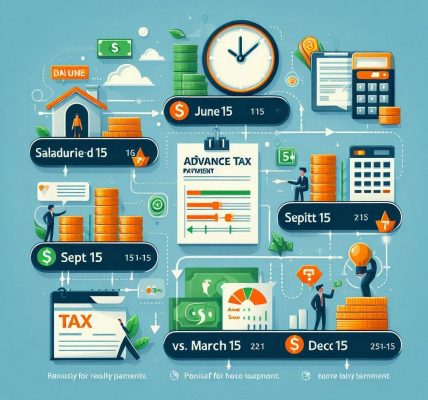Capital gains tax is a levy imposed on the profit realized from the sale of a non-inventory asset, such as stocks, bonds, real estate, or other investments. In India, the tax structure for capital gains has undergone significant changes with the introduction of the Union Budget 2024. This guide aims to provide a comprehensive understanding of capital gains tax and explore strategies to minimize your tax liability, all while ensuring compliance with legal regulations.
1. Types of Capital Gains
Capital gains are categorized based on the holding period of the asset:
- Short-Term Capital Gains (STCG): Gains from assets held for a short duration. The specific holding period defining short-term gains varies by asset class.
- Long-Term Capital Gains (LTCG): Gains from assets held for a longer duration. The specific holding period defining long-term gains varies by asset class.
2. Changes Introduced in Budget 2024
The Union Budget 2024 introduced several key changes to the capital gains tax structure:
- Uniform Tax Rate for LTCG: A flat 12.5% tax rate now applies to all types of long-term capital gains, regardless of the asset class. This replaces the previous varied rates based on asset type. business-standard.com
- Removal of Indexation Benefit: The benefit of adjusting the purchase price of an asset for inflation (indexation) has been removed for all assets. business-standard.com
- Revised Holding Periods:
- Listed Securities: Considered long-term if held for more than 12 months.
- Other Assets: Considered long-term if held for more than 24 months. business-standard.com
- Increased Exemption Limit: The tax-free limit for long-term capital gains on equity-related investments has been raised from ₹1 lakh to ₹1.25 lakh. business-standard.com
3. Strategies to Minimize Capital Gains Tax Liability
While it’s essential to comply with tax laws, there are legitimate strategies to optimize your tax liability:
a. Utilize Tax-Advantaged Accounts
Investing through tax-advantaged accounts can provide significant tax benefits:
- Public Provident Fund (PPF): Offers tax-free returns and is ideal for long-term investments.
- Employee Provident Fund (EPF): Provides tax benefits for salaried individuals.
- National Pension System (NPS): Allows for additional tax deductions under Section 80CCD(1B).
b. Strategic Asset Allocation
Aligning your investments with favorable tax treatments can be beneficial:
- Equity Investments: Long-term investments in equities can be more tax-efficient due to the revised tax rates and exemption limits.
- Debt Instruments: Be mindful of the removal of indexation benefits, which may increase tax liability on long-term gains from debt instruments.
c. Tax-Loss Harvesting
Offsetting gains with losses can reduce taxable income:
- Realize Losses: Selling underperforming investments at a loss can offset capital gains from other investments.
- Carry Forward Losses: Unadjusted losses can be carried forward for up to eight years to offset future gains.
d. Timing of Asset Sales
The holding period of an asset influences its tax treatment:
- Long-Term Holding: Holding assets beyond the specified period (12 or 24 months, depending on the asset) qualifies for the lower LTCG tax rate.
- Strategic Sales: Planning the timing of sales to coincide with lower income years can reduce overall tax liability.
e. Invest in Tax-Efficient Funds
Certain mutual funds offer tax advantages:
- Equity-Linked Savings Schemes (ELSS): Investments in ELSS funds are eligible for deductions under Section 80C, up to ₹1.5 lakh.
f. Gift or Inherit Assets
Transferring assets can have tax implications:
- Gifting to Relatives: Gifts to specified relatives are not subject to tax, and the recipient assumes the holding period of the donor.
- Inheritance: Assets received through inheritance are not taxed at the time of transfer; however, capital gains tax applies when the inherited asset is sold.
g. Avail Exemptions under Sections 54 and 54EC
Investing in specified assets can provide exemptions:
- Section 54: Allows exemption on capital gains from the sale of residential property if the gains are reinvested in another residential property within a stipulated period.
- Section 54EC: Provides exemption if capital gains are invested in specified bonds within six months of the asset sale, subject to a maximum of ₹50 lakh.
4. Legal Considerations and Compliance
Adherence to legal provisions is paramount:
- Accurate Reporting: Ensure all capital gains and losses are accurately reported in your income tax returns.
- Maintain Documentation: Keep detailed records of all transactions, including purchase and sale agreements, to substantiate your tax filings.
- Consult Professionals: Engage with certified tax professionals or financial advisors to navigate complex tax scenarios and ensure compliance.
5. Potential Pitfalls to Avoid
Being aware of common mistakes can prevent legal complications:
- Tax Evasion: Deliberately underreporting income or inflating expenses is illegal and can lead to severe penalties.
- Misinterpretation of Laws: Tax laws are subject to change; relying on outdated information can result in non-compliance.
- **Ignoring Dead




